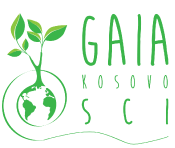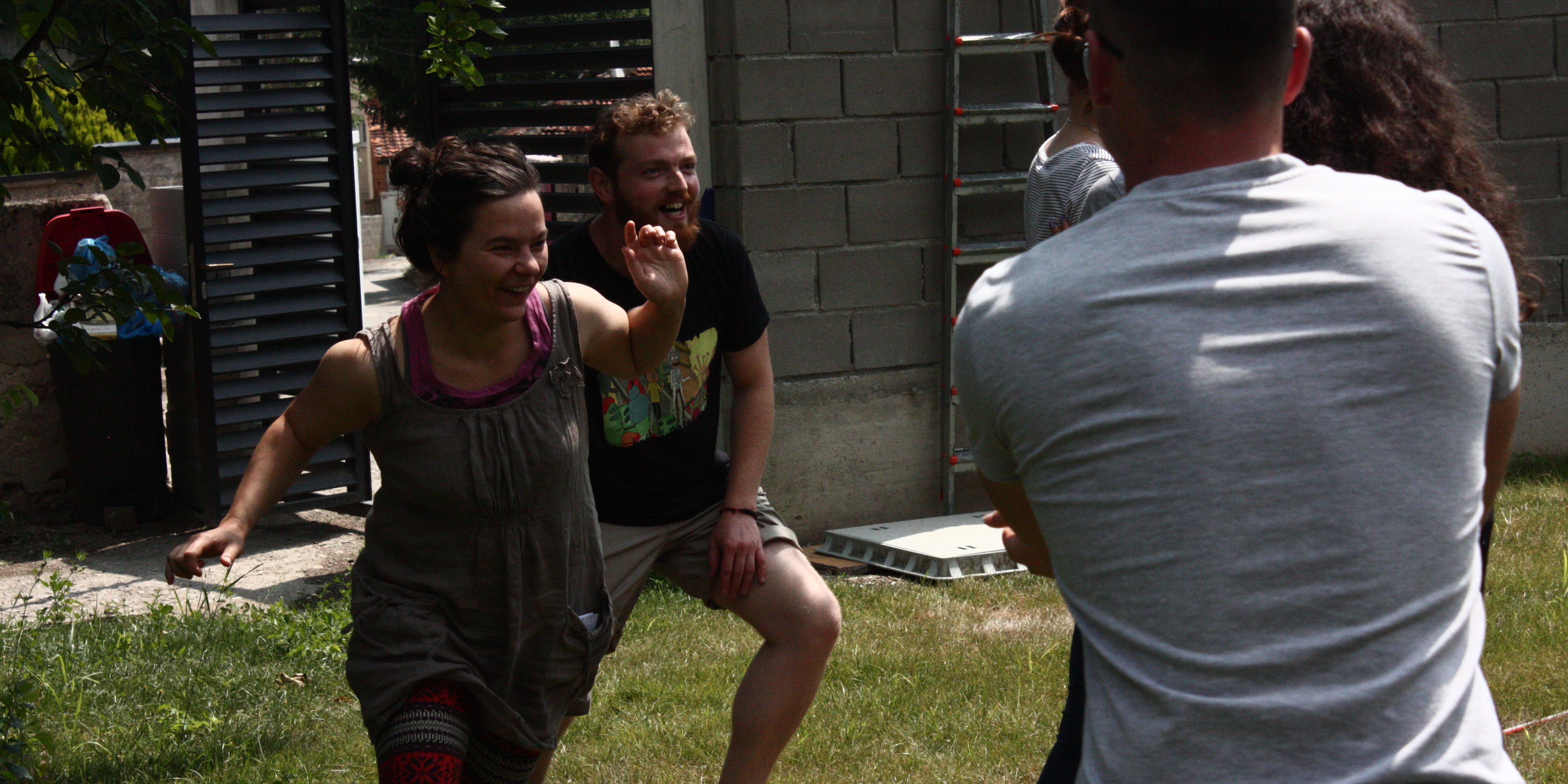A great start to the day: we were trying to engage in a diplomatic dialogue with a self-adopted cat, called Gaia, in order to convince him not to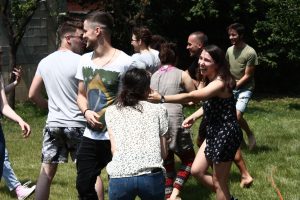 lick the cream cheese we were supposed to have for breakfast. Besides some minor scratches, Gaia got his share and we continued to eat an amazing vegetarian breakfast. In fact, we are all vegetarians for the entire week. Genta, the amazing cook, is showing the prospect of a vegetarian lifestyle; we must say, not too shabby. In fact, we have been discussing how easy and fulfilling it is to actually not eat meat. Some of us shared how much in shock our families have been once they were engaged with the idea. Meat is a luxury; back in the times of our grandparents being mostly vegetarian was a norm and wasn’t associated with the stigma it holds in the current status quo.
lick the cream cheese we were supposed to have for breakfast. Besides some minor scratches, Gaia got his share and we continued to eat an amazing vegetarian breakfast. In fact, we are all vegetarians for the entire week. Genta, the amazing cook, is showing the prospect of a vegetarian lifestyle; we must say, not too shabby. In fact, we have been discussing how easy and fulfilling it is to actually not eat meat. Some of us shared how much in shock our families have been once they were engaged with the idea. Meat is a luxury; back in the times of our grandparents being mostly vegetarian was a norm and wasn’t associated with the stigma it holds in the current status quo.
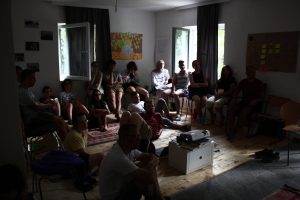 The last two days we were hearing a lot about the main environmental issue affecting Kosovo: our coal power plants. Kosovo has the world’s fifth-largest reserve of lignite, a type of coal considered one of the most polluting because of its consistency which makes it harder to consume by fire. But, as decision-makers knew they were sitting on this large amount of potential fuel, the decision to create large power plants in the ’60s, and then in the ’80s, came quite naturally to them. Thanks to these not-so-wise decisions, Kosovo can be proud to
The last two days we were hearing a lot about the main environmental issue affecting Kosovo: our coal power plants. Kosovo has the world’s fifth-largest reserve of lignite, a type of coal considered one of the most polluting because of its consistency which makes it harder to consume by fire. But, as decision-makers knew they were sitting on this large amount of potential fuel, the decision to create large power plants in the ’60s, and then in the ’80s, came quite naturally to them. Thanks to these not-so-wise decisions, Kosovo can be proud to
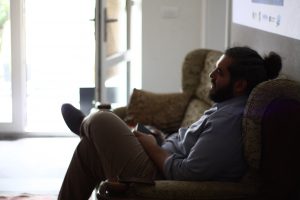 have one of the worst air quality in Europe. Our guest Viktor Berishaj, a representative from Climate Action Network Europe, narrated his adventures around Kosovo, measuring the number of toxic particles in the air surrounding himself. In some neighbourhoods of the capital, the air was just unbearable. But he was himself surprised to find high amounts of toxicity also in remote places such as Brezovica. The air moves; it knows no borders. Even parts of Kosovo that we imagine as havens for our lungs are affected by this curse, sadly a known characteristic of our country. We could actually see the shock on some of the participants’ faces when they understood that the inside of their homes was not spared. “You can close your windows, you will still have some air going inside. If you have air, you have those particles”, Viktor explained. Of course, the emissions are not only a threat to our health today, but they are also a major factor of climate change, which could potentially make societies as we know them, collapse. Kosovo is fueling a nightmarish prospect for our near future.
have one of the worst air quality in Europe. Our guest Viktor Berishaj, a representative from Climate Action Network Europe, narrated his adventures around Kosovo, measuring the number of toxic particles in the air surrounding himself. In some neighbourhoods of the capital, the air was just unbearable. But he was himself surprised to find high amounts of toxicity also in remote places such as Brezovica. The air moves; it knows no borders. Even parts of Kosovo that we imagine as havens for our lungs are affected by this curse, sadly a known characteristic of our country. We could actually see the shock on some of the participants’ faces when they understood that the inside of their homes was not spared. “You can close your windows, you will still have some air going inside. If you have air, you have those particles”, Viktor explained. Of course, the emissions are not only a threat to our health today, but they are also a major factor of climate change, which could potentially make societies as we know them, collapse. Kosovo is fueling a nightmarish prospect for our near future.
The situation is already very bad. Our government intends to make it worse. For a few years, they plan to build a new coal power plant. Rather than addressing the issue, finding alternatives, investing in sustainable solutions, they want to keep on trying the same old recipe, one that actually kills us. ‘Kosova e re’ will be a new source of disaster for our health and our children’s health. Rinora Gojani from the Balkan Green 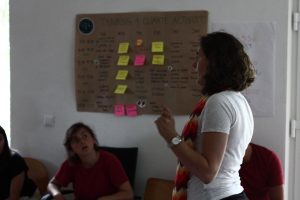 Foundation also had very valuable insights on the issues of the use of coal, and how this new power plant has to be stopped. She showed a visual comparison to how things might change after the construction of said power plant, one of the most potent being the drastic increase in taxes, a visual comparison Kosovars would notice. Viktor, on the other hand, detailed more the ways we have, as citizens, to actually stop this from happening. When he explained the legal processes, exposing that the construction is actually illegal, he announced that the government is being sued since recently, thanks to activists who “did their homework” of researching the issue, kept asking the authorities for the information which should be made public, called out to the politicians every time they had the opportunity to do so. The room burst into applause. This can be the hope we were discussing the first day of our training. This was our inspiration to go out and demand what’s right. What we understood is that each individual, each citizen, is able to keep the policymakers accountable. If so, things will surely change for the better!
Foundation also had very valuable insights on the issues of the use of coal, and how this new power plant has to be stopped. She showed a visual comparison to how things might change after the construction of said power plant, one of the most potent being the drastic increase in taxes, a visual comparison Kosovars would notice. Viktor, on the other hand, detailed more the ways we have, as citizens, to actually stop this from happening. When he explained the legal processes, exposing that the construction is actually illegal, he announced that the government is being sued since recently, thanks to activists who “did their homework” of researching the issue, kept asking the authorities for the information which should be made public, called out to the politicians every time they had the opportunity to do so. The room burst into applause. This can be the hope we were discussing the first day of our training. This was our inspiration to go out and demand what’s right. What we understood is that each individual, each citizen, is able to keep the policymakers accountable. If so, things will surely change for the better!
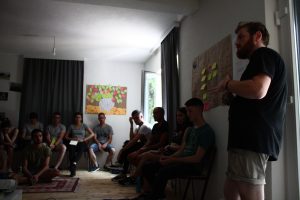
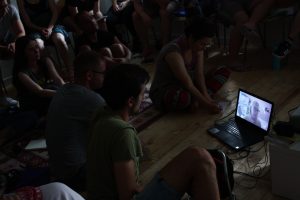
[This blog was written by a participant of the training]
This grant is supported by the ‘Civil Society programme for Albania and Kosovo’, financed by the Norwegian Ministry of Foreign Affairs and managed by Kosovar Civil Society Foundation (KCSF) in partnership with Partners Albania for Change and Development (PA). The content and recommendations do not represent the official position of the Norwegian Ministry of Foreign Affairs and Kosovar Civil Society Foundation (KCSF).
